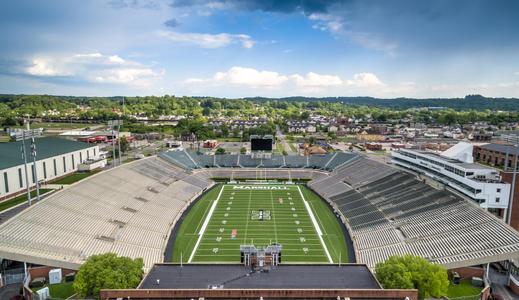Cabell and Wayne county first responders, Marshall University personnel and the military will test an all-agency response to a simulated mass casualty incident during a Thundering Herd football game.
About 150 volunteer victims will be tracked, triaged, decontaminated if needed, and treated by local hospitals.
Jerry Beckett, chairman of the Cabell Wayne Local Emergency Planning Committee, said a mass casualty incident test is required once a year for hospital accreditation.
“It also tests many facets of the hospitals,” Beckett said. “Not only their emergency room, but their operating rooms, or ability to provide blood or pediatrics or burn centers, several different aspects of it, and they ramp up all of that and actually bring people in to simulate these.”
Beckett called the event all-encompassing for first responders.
“We bring all of our community partners together,” Beckett said. “The hospitals, the West Virginia National Guard, our fire departments, law enforcement, health department’s Tri-State Transit Authority, there are several other organizations, including the Salvation Army. We all come together for this community wide exercise to evaluate our resources and see where we have any gaps so that we can fix those in a timely fashion.”
Beckett said in the past, the testing has identified gaps in communications or inter-agency cooperation and allowed for fixes.
“It gives us an opportunity to test not only the equipment that we have, but also the knowledge of the users,” Beckett said. “There could be some training opportunities that come out of this that we may need to beef up. We may need equipment. We have to work those issues out, and it’s best to do that in an exercise rather than a real world event.”
Beckett said the West Virginia National Guard will have a major presence this year, doing some urban search and rescue and will have their own medical unit on-site.
